
Sir Joseph Heron (3 January 1809 - 23 December 1889) was a British lawyer, politician and administrator. He was town clerk of Manchester for over forty years, playing a dominant role in the city's growth throughout the 19th century.

Sir Joseph Heron (3 January 1809 - 23 December 1889) was a British lawyer, politician and administrator. He was town clerk of Manchester for over forty years, playing a dominant role in the city's growth throughout the 19th century.
Heron was born in Deansgate House, Manchester, the fourth of ten children of James Holt Heron, a cotton merchant. [1] He came from a non-conformist family trained in Moravian schools. [2] In 1838, he was handpicked by Thomas Potter to become the first town clerk of Manchester. Heron was unique amongst British municipal administrators due to his longevity and influence. He remained as town clerk from the inception of the role until his death in 1889. [3] Amongst his contemporaries he was described as a consummate ruler of men, [3] where his will was considered law in all civic matters and common public perception was that he was not only the town clerk but mayor and corporation all in one. [4] He was instrumental in bringing clean water to Manchester by constructing the Longdendale chain of reservoirs – then the largest such project in the world. [5]
He was knighted by Queen Victoria in 1869 [6] and, in 1879, Alderman John King gifted the Manchester Corporation a bust of Heron sculpted by Warrington Wood. [7] From 1879, he was consultant town clerk, and spent his later years in Bournemouth. He died in Cannes, France, on 23 December 1889. [8]

Sir James Phillips Kay-Shuttleworth, 1st Baronet of Gawthorpe Hall, Lancashire, was a British politician and educationist. He founded a further-education college that would eventually become Plymouth Marjon University.
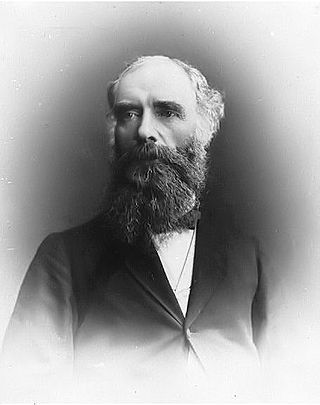
Donald Alexander Smith, 1st Baron Strathcona and Mount Royal, known as Sir Donald A. Smith between May 1886 and August 1897, was a Scottish-born Canadian businessman who became one of the British Empire's foremost builders and philanthropists. He became commissioner, governor and principal shareholder of the Hudson's Bay Company. He was president of the Bank of Montreal and with his first cousin, George Stephen, co-founded the Canadian Pacific Railway. He was elected to the Legislative Assembly of Manitoba and afterwards represented Montreal in the House of Commons of Canada. He was Canadian High Commissioner to the United Kingdom from 1896 to 1914. He was chairman of Burmah Oil and the Anglo-Persian Oil Company. He was chancellor of McGill University (1889–1914) and the University of Aberdeen.
Edward Hall was an English lawyer and historian, best known for his The Union of the Two Noble and Illustre Families of Lancastre and Yorke—commonly known as Hall's Chronicle—first published in 1548. He was also several times a member of the Parliament of England.

Carl August Nicholas Rosa was a German-born musical impresario best remembered for founding an English opera company known as the Carl Rosa Opera Company. He started his company in 1869 together with his wife, Euphrosyne Parepa-Rosa, and popularised opera in Britain and America, performing standard repertory in English, as well as operas by English composers.
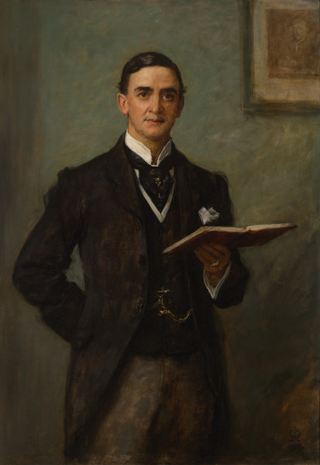
Sir John Hare, born John Joseph Fairs, was an English actor and theatre manager of the later 19th– and early 20th centuries.

Sir Robert MontgomeryGCSI, KCB, was a British administrator and civil servant in colonial India. He was Chief Commissioner of Oudh during the period of 1858 to 1859 and later served as Lieutenant Governor of Punjab between 1859 and 1865.
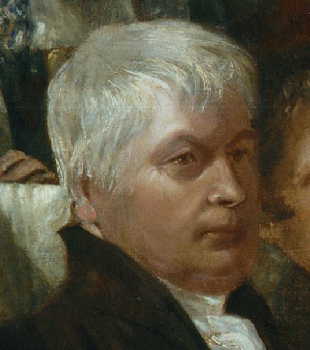
Samuel Gurney was an English banker and philanthropist from the Gurney family of Norwich. He should not be confused with his second son, Samuel (1816–1882), also described as banker and philanthropist, and a Member of Parliament.
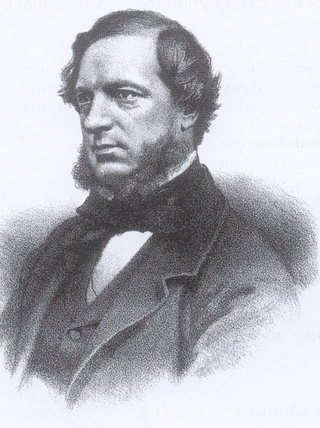
John Frederick La Trobe Bateman was an English civil engineer whose work formed the basis of the modern United Kingdom water supply industry. For more than 50 years from 1835 he designed and constructed reservoirs and waterworks. His largest project was the Longdendale Chain system that has supplied Manchester with much of its water since the 19th century. The construction of what was in its day the largest chain of reservoirs in the world began in 1848 and was completed in 1877. Bateman became "the greatest dam-builder of his generation".

Farmer & Brindley was a firm of architectural sculptors and ornamentalists based in London, founded by William Farmer (1825–1879) and William Brindley (1832–1919)
The Martineau family is an intellectual, business and political dynasty associated first with Norwich and later also London and Birmingham, England. The family were prominent Unitarians; a room in London's Essex Hall, the headquarters building of the British Unitarians, was named after them. Martineau Place in Birmingham's central business district was named in their honour.

Sir James Allanson Picton was an English antiquary and architect who played a large part in the public life of Liverpool. He took a particular interest in the establishment of public libraries.

Joseph Brotherton was a reforming British politician, Nonconformist minister and pioneering vegetarian. He has been described as the first vegetarian member of parliament.

Sir Richard Kaye, 6th Baronet,, LL.D was an English peer, churchman and scientist. He was Dean of Lincoln from 1783, and inherited the baronetcy from his elder brother Sir John Lister Kaye, 5th Baronet in 1789.

Sir John Mellor, PC was an English judge and Member of Parliament.
Sir Gilbert Elliot, 2nd Baronet, was a Scottish lawyer, politician and judge from Minto in the Scottish Borders. From 1763 until his death 3 years later, he was Lord Justice Clerk, the second most senior judge in Scotland.
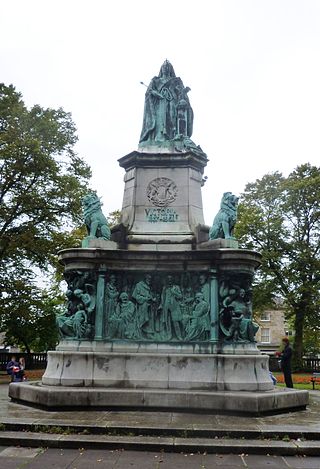
The Queen Victoria Memorial in Lancaster, Lancashire, England, is a Grade II* listed building. It stands in the centre of Dalton Square, Lancaster facing Lancaster Town Hall. It was erected in 1906, being commissioned and paid for by James Williamson, 1st Baron Ashton.

Sir Patrick Heron Watson was an eminent 19th-century Scottish surgeon and pioneer of anaesthetic development. He was associated with a number of surgical innovations including excision of the knee joint, excision of the thyroid and excision of the larynx for malignant disease. He was President of the Royal College of Surgeons of Edinburgh on two occasions, an unusual honour, and was the first President of the Edinburgh Dental Hospital. He was a great advocate of women training in medicine and surgery and did much to advance that cause.

John Hull (1761–1843) was a prominent physician and obstetrician in Manchester during the late 18th and early 19th centuries. He played an active role within the city's medical profession, and engaged in debate on issues of the day. He established himself as a physician and became prominent in the field of obstetrics.
Alfred Egmont Hake (1849–1916) was an English author and social thinker. He became associated with the narrative of Charles George Gordon as a figure of the British Empire, in a fortuitous way.
Frederic George D'Aeth was a British social administrator, lecturer and author of books on social matters, whose work particularly in Liverpool "played a key role in winning for the city its status as the flagship of social advance in the early twentieth century".